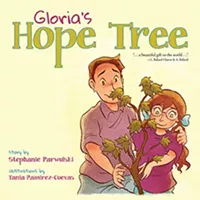"Literary power couple." That's how the communications director for the North Carolina Writers' Network describes writers Morri and Sarah Creech to me in an email. Considering their recent successes, rightfully so.
Earlier this year, Morri, 44, was named a finalist for the Pulitzer Prize for his poetry collection, The Sleep of Reason. Sarah, his wife of more than five years, published her debut novel Season of the Dragonflies with HarperCollins in August to much critical acclaim. The 31-year-old also just sold the publisher her second novel, coming out in 2016.
This weekend, the Creeches will share their respective knowledge in the worlds of poetry and fiction during the N.C. Writers Network fall conference, happening Nov. 21-23 at the Sheraton in Uptown.
But during a recent conversation at Julia's Coffee, it's not these newsier tidbits that captivate me. Rather, it's the way this poet points out that his wife bought him the leather-bound notebook he spends hours writing in. And the way the novelist's eyes light up as she gushes a little about how much her husband's third book deserved that Pulitzer recognition.
Their love story is conventional, not unlike mine or yours. Maybe that's why I'm drawn to it.
The two met at McNeese State University in Lake Charles, Louisiana; she was a grad student, he was a professor. Their first encounter is well-documented in a love poem — a sonnet, no less — Morri wrote for Sarah, titled "The Choice."
"We met because of our creative disciplines," Sarah says, "but I was drawn to him because he was cute." She laughs. "But did I quickly appreciate his work and how talented he is? Absolutely."
Nowadays, they both teach full time at Queens University while balancing the duties of managing a household (which includes parenting 5-year-old Miriam and 12-year-old Hattie) while finding time to retreat from the real world so they can write.
They seem to have mostly figured out how to balance it all. Even in our interview, they trade off back and forth.
"I don't feel like my creative life interrupts my regular life; I feel like it's the other way around," Sarah says. "I feel like I'm my true self when I'm in my office, alone, door shut, writing. And that when I come out, there are all these different masks that I have to wear."
"Sarah is much more of a scheduled worker," Morri says. "She carves out her time during the day to work. I'm much more of a sporadic and impulsive worker. I go for days or weeks wearing the dad mask or wearing the teacher mask, or the husband mask. The writing, when it comes, it's all-consuming and I can't do anything else."
"That's where we have a trade-off," Sarah says. "I call it single-mom mode. That's when I really understand how hard it is to be a single mom, and I have a lot of empathy and respect for that. Because when he goes, I don't see my husband for days."
While their writing goals are different — she's focused on making her second book better than the first, while he works to find new ways to explore the subjects and themes he's passionate about — what they do have in common is that distracting desire to go to what Morri calls "this place where we can be completely irrational and playful and driven and focused" as they write.
When he was in grad school, one of Morri's advisors, the poet Paul Zimmer, dropped this nugget of wisdom on him. "'You need to find someone who will love you as a writer. They will understand that there are times you will go away, and you won't be around, you'll be obsessive, you'll be self-critical, and you will spend this time doing this weird thing that most people won't do.' And he said, 'You don't have to marry a writer, but you have to marry someone who understands that part of your personality.'
"Sarah understands that part of my personality," Morri continues, "and I understand that part of hers."
Literary power couple, indeed.
Speaking of...
Latest in Books
More by Kimberly Lawson
-

Two Former 'CL' Editors Discuss the Hurdles of Increasing Diversity
Apr 26, 2017 -

Picky eaters need not join
May 27, 2015 -

O.N.E. Charlotte pushes for restorative justice in CMS
May 27, 2015 - More »
Calendar
-
 RuPaul's Drag Race Werq The World Tour 2025 @ Ovens Auditorium
RuPaul's Drag Race Werq The World Tour 2025 @ Ovens Auditorium -
 Boulet Brothers Dragula: Season 666 Tour @ N.C. Music Factory
Boulet Brothers Dragula: Season 666 Tour @ N.C. Music Factory -
 Jim Norton @ The Underground
Jim Norton @ The Underground -

Trap & Paint + Music Bingo @ Blush CLT
-

Trap & Paint (Hookah Edition) @ Blush CLT













